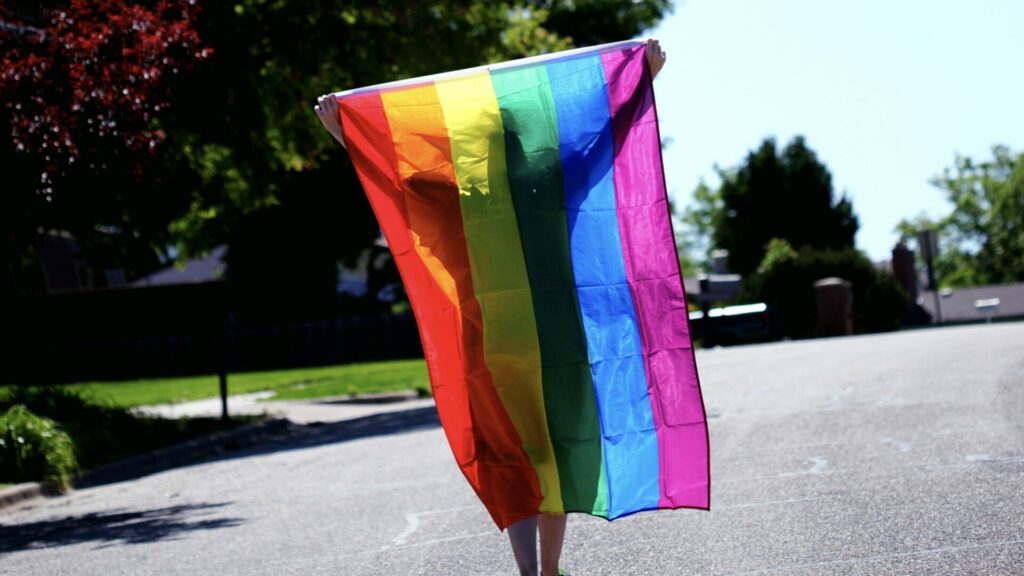LGBTQ representation in film dropped in 2021, GLAAD report finds
Gay men made up the majority of LGBTQ characters in films in 2021.

A report by GLAAD (Gay & Lesbian Alliance Against Defamation) has found that 2021 saw a drop in LGBTQ representation in film.
In its annual report of films produced by seven major film studios, GLAAD says only 16 of the 77 theatrical releases contained LGBTQ characters. The studios are Lionsgate, Paramount Pictures, Sony Pictures, United Artists Releasing, Universal Pictures, The Walt Disney Studios, and Warner Bros.
Percentage-wise this is 20.8%. In 2020, 22.7% of films had LGBTQ characters, meaning a 1.9% drop to 2021. Some of the films considered in the report are Licorice Pizza, Eternals, and West Side Story.
GLAAD does note that the 2020 report included “a very limited number of theatrically released films as theaters had been largely closed in 2020 due to the global COVID-19 pandemic.”
Among the report’s findings:
- There were 28 LGBTQ characters in theatrical releases in 2021, up 8 from 2020. 19 were men and nine were women.
- A trans character appeared in a major studio release for the first time in five years. This was Anybodys (a trans man) from West Side Story. No trans women or non-binary characters were counted.
- The racial diversity of LGBTQ characters dropped one point to 39% with 11 out of the 28 characters being characters of color. This is an increase of three characters. 2017 set the record of 57% of LGBTQ characters being non-white.
- Gay men made up the majority of representation with 69% while Lesbian representation halved from 2020 going from eight to four characters in 2021. Two films in 2021 had a bisexual character.
- Screen time for LGBTQ characters fell with only seven LGBTQ characters getting more than 10 minutes. Most had less than five minutes.
- None of the LGBT characters had a disability and none were living with HIV, for the second year in a row.
GLAAD also gave all seven studios a rating of either “insufficient,” “Poor,” or “Failing”. These ratings, the organisation says, are based on the quantity, quality, and diversity of LGBTQ characters. It is also based on whether studios and/or their parent companies have supported or harmed the LGBTQ community.
Of the films released in 2021, only nine passed GLAAD’s Vito Russo Test which has the following criteria:
- A character must be identifiably lesbian, gay, bisexual, transgender, and/or queer.
- That character must not be defined by only their sexual orientation or gender identity
- The character should be meaningfully connected to the film’s plot, not just for colour or a punchline.
- The character’s story must not fall on stereotypes of queer people.
The nine films represent 56% of films in 2021 with LGBTQ characters. This is a drop from 90% in 2020. “This decrease emphasizes the need for more significant and meaningful LGBTQ content in major studio films,” the report reads.
Commenting on the report’s finding, GLAAD CEO, Sarah Kate Ellis, said: “At a time when the LGBTQ community is under unprecedented attacks, it is more important than ever to hold studios and corporations accountable as businesses remain the most trusted entity in the U.S.”
She also said of the organisation’s tracking of the studios actions regarding the LGBTQ community: “This new addition to our methodology tracking corporate actions makes it clear that entertainment and media companies need to expand beyond onscreen representation.
“LGBTQ people deserve to have positive representation reflected in cinemas around the world, and to know that the people and companies who make and market LGBTQ-inclusive films unequivocally stand up for LGBTQ folks.”
Addressing the lack of representation for bisexuals, trans people, those living with HIV and with disabilities Megan Townsend, GLAAD’s Director of Entertainment Research and Analysis adds, “these stories must become a priority if studios want younger and more diverse generations to continue to support and engage with their storytelling.”
GLAAD has also called for studios to “acquire and release the outstanding LGBTQ projects named to GLAAD’s most recent GLAAD List“. This is an annual list from GLAAD and The Black List of the most promising unmade LGBTQ-inclusive scripts in Hollywood.
